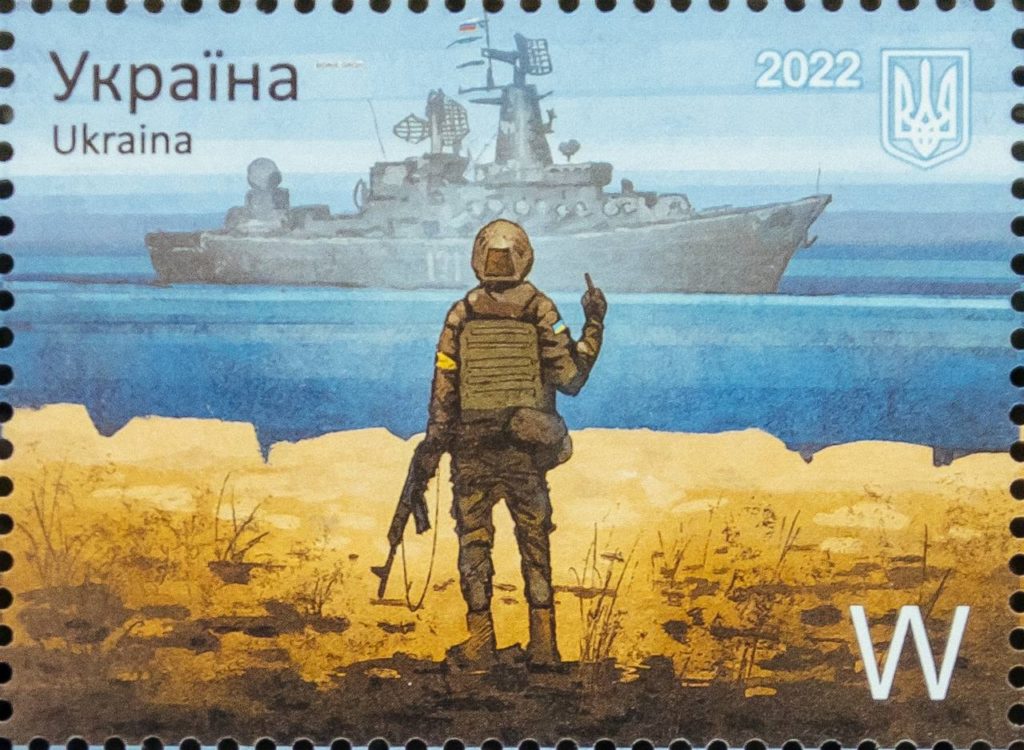The Loss of the Moskva

I’ll admit that I initially struggled to believe that the Ukrainians had sunk the Moskva, but here we are. This is easily the most significant naval combat loss since the sinking of General Belgrano forty years ago. The military impact of Moskva’s destruction is mainly the loss to Russia of her S-300 surface-to-air missile system, which provided air defense cover on Ukraine’s southern coast and consequently may loosen up things a bit for the Ukrainian air force. The surface-to-surface missiles that Moskva carried were not optimized for land attack and her most important contribution to land fighting was probably her 130mm gun. Early reports indicate that the rest of the Black Sea Fleet has amscrayed the Ukrainian littoral, which puts a final nail in the coffin of any significant amphibious assault against the Odessa region.
The symbolic importance of the ship’s sinking is huge. Moskva is now part of the two most famous events of the war; the Battle of Snake Island (immortalized on the above postage stamp) and her own sinking. In a war characterized by stunning Russian incompetence the loss of the fleet flagship named after the national capital to an opponent that no longer has a navy is somehow next level stunning. Part of the problem is that Moskva was being sailed in an exceedingly predictable fashion, which made her very easy to attack. As the days go on we may get a better sense of how the attack came off and what Russian damage control procedures looked like; for my part I wonder if she wasn’t prematurely abandoned.
It should go without saying, however, that the loss of Moskva does not mean much for the end of the war. Russia is preparing a major offensive in the Donbas that could still save some of its most important objectives, and it’s not clear that the Ukrainians can avoid a significant encirclement. I do NOT like this map. Russia has also begun the hit Ukrainian cities again across the country, including a strike against the factory that builds Neptune anti-ship missiles. The next couple of weeks could get very difficult for Ukraine.
Some links:
- Thoughts on the symbolic significance of major warships like Moskva.
- Detailed account of Moskva’s relevance at Oryx, including discussion of how TB2 drones may have contributed to the sinking.
- Some additional details of Moskva’s purpose and utility in the war from the NYT…
- Details on the Neptune missiles that put Moskva down.
Some more thoughts on Moskva’s loss at 1945 (this was written before confirmation that she had sunk):
It also bears mention that many analysts of naval affairs have argued for a long time that large, expensive surface warships like Moskva represent more of a vulnerable liability than a lethal asset. On the other hand, some will argue that Moskva is the exception that proves the rule; major warships are vulnerable when they are poorly defended and not equipped with the most modern defensive weaponry.
And some thoughts on the (lack of) impact of the Russian amphibious fleet in the war thus far:
Contrary to the worst expectations from before the war, the Russians have failed to decisively exploit their advantage at sea to win battles on land. This may mean that the long-held hope that amphibious assaults could throw an opponent off balance has yet to be rewarded, or it could mean that Russia simply didn’t have the equipment it needed to bring the fight from the sea.
